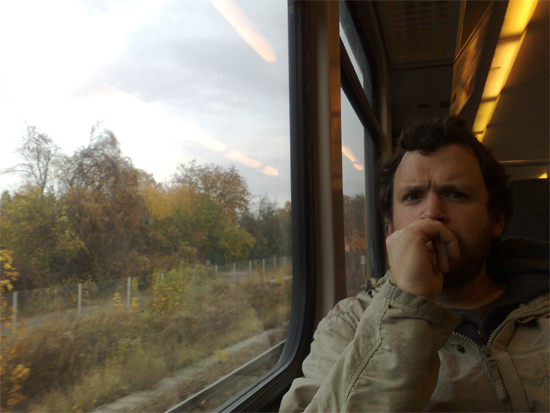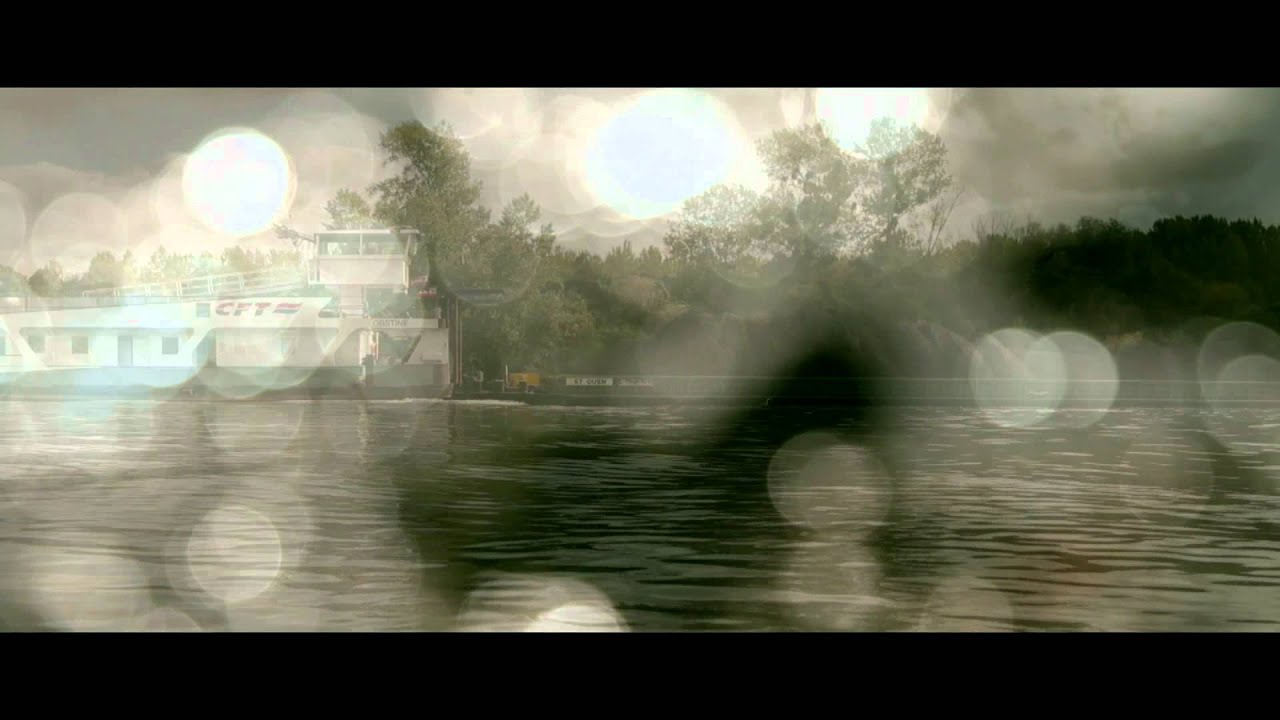There are many special things about this Thursday afternoon in Anstruther.
There’s 22° in March, for starters.
There’s the harbour public toilet attendant, idly dancing in her booth to Erasure’s ‘I Love Saturday’ at full volume. There’s the Fence Collective vegetable patch, its earth overturned for a new year’s digging, cultivation and rich pickings; its warm slope rolling into a beer garden.
And there is Seamus Fogarty, sitting backlit by the sun, in the Scottish Fisheries Museum tearoom.
Fogarty, the latest signing to King Creosote’s Fence Records DIY empire, is a beguiling Irish singer-songwriter and electronic augurer, who comes backed with a roaring James Yorkston endorsement; whose instrumental arsenal includes cheese, alarm clocks and "bendy metal prongs"; and whose debut album, God Damn You Mountain, is a windswept, heady blend of found sounds, pipe smoke, laptop alchemy and psych-folk.
And he is talking banjos.
"I found this banjo in an old house I moved into, in Limerick," says the London-based, County Mayo-raised Fogarty. "It was the autumn of 2005, and when I called up the landlord about the place he made a point of saying that the house had electricity."
Was that a key domestic pre-requisite? "Actually, one of the main reasons I moved into that house was the sound of it. There was a room like this in it – full of wood and beautiful sound – and the sound of that room is a really big part of the album. And there was this banjo with two strings in the corner. I said to the landlord, ‘Is it okay if I get some strings for this?’ And he was like, ‘Oh yeah’, and let me keep it. And so I learned the banjo."
Ambience and banjos have starring roles in the unhurried psalms of God Damn You Mountain, an album for which we must in part thank Fife folk master-craftsman, James Yorkston. "I wouldn’t have written a lot of those songs if I didn’t have James saying, ‘Send me another one, send me another one,’" says Fogarty. The two met when Fogarty supported Yorkston in Ireland. "We were going to do something together at first, but then James started saying, ‘You know what? You don’t need me to do anything.’ He was really great." Fence chief aka Johnny Lynch, aka The Pictish Trail, performed a similar role, finding Fogarty last-minute slots at their Homegame festival, and drawing enough songs out of our charming protagonist to make an album.
The record transpired to be an almost entirely solo affair. With the exception of rare contributions from violinist Emma Smith (Geese / Elysian Quartet), singer Dorota Konczewska and Tom Griffiths, Fogarty played all the instruments and made all the sounds – banjo, fiddle, guitar, MS-20 analogue synth, chopsticks, butter dishes, seashells.
"Yeah, there are lots of weird bits of percussion on there," he nods. "So, say on ‘The Waterside’, that was just me fiddling around with some seashells and recording straight into the laptop, at one or two in the morning. And on ‘The Question’, there’s this weird instrument that I bought in Marrakesh.
"It’s some sort of Moroccan lute made out of bits of old staircase. I went there in 2009 with the intention of enjoying an exotic week away while stocking up on cheap percussion and recording some of the sounds of Morocco. But I flew Ryanair and when they couldn’t land in Marrakesh they conveniently dropped us in Fez, eight hours away. It wasn’t a very good holiday. I think that’s where I scribbled a few lines about how you think life is shit when you’re young and then the shit becomes your life. That became ‘The Question’."
The parts of the album not written in Limerick were largely penned (and part-recorded) in a "very, very isolated" cottage in South County Kerry. The hills of the Iveragh Peninsula loom large over Fogarty’s debut, responsible for its title, God Damn You Mountain, and shouldering blame for its central disaster: the loss of our hero’s favourite t-shirt. "It was a fading yellow beauty, with a man saying, ‘Yello’ into a phone, and I lost it on its summit," Fogarty curses. "It was stunning, and losing it left me so traumatised that I wrote, ‘God Damn You Mountain’. You could say it’s my ‘Candle In The Wind,’" he deadpans.
Not enough people write love songs to lost clothes.
"I know, I know," Fogarty shakes his head. "They’re such personal things. They’re irreplaceable. I mean I bought that t-shirt in a thrift store, for a dollar. It’s never…" he trails off.
"It was really amazing when I lived down there though," he brightens, a propos his six months in remote County Kerry. "It was like a retreat based around six or seven cottages, right on the ocean, and some of them are as old as the famine – 1840, 1850. While I was there, this old woman came back, she’d been born in the cottage, and she hadn’t been there in years." Her spoken memories of the house – ‘you could see stars through the big open chimneys’; ‘everything we had was knitted, and it’d all be knitted white’ – are beautifully woven through ‘Rita Jack’s Lament’.
"Those were her very first reactions, real stream-of-consciousness stuff, remembering the place," he nods. Does that folk tradition of documenting oral histories appeal to Fogarty? "Yeah, I like recording people like that, specifically older people – kind of archiving."

One of the (myriad) charms of God Damn You Mountain lies in its untroubled pace. As Fogarty puts it, "The album is a quiet, bizarre affair, which begins with the saddest, slowest song I’ve ever recorded [‘Appletrees’] and only barely manages to pick up pace as it ambles along." Is this curious blend of minimalism, folk, environment and electronica inspired by any particular aesthetic approach or artist?
"Not really, no," he says. "I mean I’ve always liked electronic music, and that’s shaped different elements of my music [he name-checks The Orb, Tortoise, Steve Reich and Philip Glass]. Generally what I do ends up on the slower side of things – there’s not much pumping bass or whatever," he laughs.
"I did have this David Grubbs album actually, [2002’s] ‘Rickets and Scurvy’ – I love David Grubbs – and I put it onto my iPod, but for some reason I put it on the wrong way round," he offers. "It played the last track first, so I’d be driving into work, and I had a good half hour every morning, and I kept listening to the album starting at the end, which is really slow. And I thought, ‘Actually, that’s really weird to put such a slow song at the start of the album, but it’s really cool’. So with ‘Appletrees’, I was kind of like, ‘Actually, I can get away with this.’"
With home baking, tea and coffee taken, we wander along the harbour to a tavern overlooked by King Creosote’s allotment. As we pay for our drinks in the wood-filled bar, we notice a banjo in the corner. You can’t help thinking Fogarty has found the perfect home in Fence.
God Damn You Mountain is released on April 16th through Fence Records.
Seamus Fogarty plays Fence’s Eye O’ The Dug festival, St Andrews, Scotland, April 14-15. His album launch show is at London’s Wilmington Arms, London, April 19.



